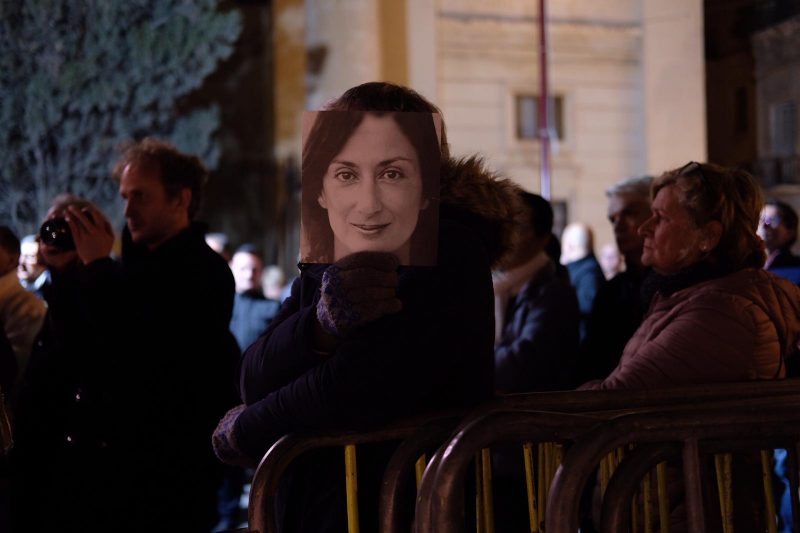European press freedom watchdog Mapping Media Freedom (MAPMF) has registered yet another violation in Malta, this time in connection with murder suspect Yorgen Fenech’s attempt to gain access to the phone of assassinated journalist Daphne Caruana Galizia.
Fenech, charged with masterminding and financing Caruana Galizia’s assassination, requested in court in February a copy of the data related to Caruana Galizia’s phone – a move that was acknowledged as a ‘legal incident’ and a ‘violation of anonymity’ by the watchdog. The attempt has caused concern about the protection of Caruana Galizia’s sources.
“Should the court rule that the defence be given access to the full and unredacted data, this will expose the identity of sources exposing them also to risks of harm and legal proceedings,” the incident report states.
The phone forms part of the evidence collected in the investigations into Caruana Galizia’s murder and is presented as part of the evidence in criminal proceedings against the accused. The accused is entitled by law to access all the evidence presented.
“As the journalist worked on sensitive investigations she communicated with sources using her mobile phone, and likely received data and information through her phone, there is a high risk of exposure of sources and source material if the accused gains access to the full data,” the report states.
#Malta 🇲🇹: Suspect indicted for journalist Caruana Galizia’s murder seeks access to victim's phone data.
Read the alert 👉 https://t.co/BJV3L9ljnQ
Report new threats 👉 https://t.co/xwMP9Icsil #MFRR #MediaFreedom #FreePress #DaphneCaruanaGalizia— Media Freedom Rapid Response (MFRR) (@MediaFreedomEU) March 7, 2022
The data is likely to include names and numbers, documents, photographs, contacts and other types of data files that “may identify sources”.
The incident report also notes how Electrogas, of which Fenech was a director, had already asked the police to investigate a data leak from within the company, on which “a magisterial inquiry is thought to be ongoing to identify that source”.
Concern prevails despite Attorney General’s court declaration
Following the request of the accused and after an alert was raised by the Caruana Galizia lawyer with the Attorney General, the AG’s office told the court that while there is no intention to deny the accused access to any part of the evidence, it requests the court to hand over the data in its entirety save for the data that exposes sources’ identities and other sensitive data linked to the sources.
However, the incident report explains that the anonymisation of data may not, in itself, be able to shield sources from identification and “ensuring the full protection of sources is very difficult should the data be granted to the accused without the necessary safeguards”.
Even partial or traces of data could be combined with other information or data not necessarily linked to the same device “to build an information picture through jigsaw identification that could put the source at risk”, it says, adding that for such a task to be fulfilled, it would be likely that a court-appointed expert would need to know the identity of the sources.
“Without in-depth familiarity with Daphne’s modus operandi, scope of research, lines of investigation, contact network, and network of sources, there is a risk that information that could be used to identify a source or be traced back to a suspected source, will be handed over to the accused putting not just the identity of the source/s at risk, but possibly also their life”.
This latest episode is the fifth threat registered by the platform in 2022, despite assurances by Prime Minister Robert Abela to international press freedom NGOs last October about his commitment to ensuring the safety of journalists.












